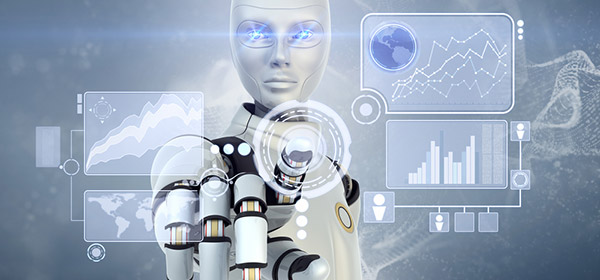The Committee for Economic Development of Australia (CEDA) has released a report that predicts around 40 per cent of Australian jobs could be replaced by technology within 10 to 15 years.
The report estimates that computerisation and automated systems could make almost five million Australian jobs redundant by 2025, thanks to rapid advances in this type of technology.
Almost 40 per cent of jobs that currently exist face a high probability of being made obsolete in the next two decades, with a further 18.4 per cent of jobs having a medium probability of being replaced. In some parts of rural and regional Australia, there is a high likelihood of job losses being around the 60 per cent mark.
“While we have seen automation replace some jobs in areas such as agriculture, mining and manufacturing, other areas where we are likely to see change are, for example, the health sector, which to date has remained largely untouched by technological change,” said CEDA Chief Executive Stephen Martin.
And it’s not just low-paid, manual jobs at risk, but also professions such as dentistry, chemical engineering, nursing and data analysis.
The advent of autonomous vehicles could also profoundly affect around 28 per cent of Australians currently employed in jobs involving driving.
Professor Martin says we are, “woefully underfunded compared to global competitors”. Current funding provided by the government to tackle this challenge amounts to only AU$190 million over four years, compared to the United Kingdom’s AU$3 billion over the same period. He believes if the government doesn’t prepare for these technological changes, we are in danger of being left behind.
“If we develop the right policies now, we have the potential to reduce the impact of these challenges and ensure our economy remains robust,” said Professor Martin.
Read more at The Australian
Read more at www.abc.net.au
Opinion: It’s not all doom and gloom
The world is on the verge of a new industrial revolution and Australia needs to plan for a future based around rapid technological advances or we, and our economy, will suffer.
The results of this report may sound ominous, especially when we take into consideration that the government wants to extend the retirement age to 70. At first glance we may be alarmed at how seniors can expect to retain, or even find employment when, by 2025, ‘the machines’ will most likely be doing almost half the work that currently exists. But it doesn’t all have to be doom and gloom.
Admittedly, I have an optimistic view of automation. It’s strange to think that many things that humans do today will be done by robots in 10 years time, but I believe there is potential for great opportunity and that automation could be a blessing in disguise for us all.
In theory, automation should lower the cost of living. Manufacturing costs should be reduced, because companies will no longer have to pay and maintain staff, making products less expensive and readily available. As I said though, that’s just a theory.
“Sure,” I hear you say, “but where will we get the money to pay for these products if we don’t have a job?”
There will always be a demand for skilled human work; we just need to reshape our workforce around these technological advances. We will always need problem solvers and people who can think outside the box. Creativity will come at a premium. So, get out your knitting needles and Mason jars, because the hand made scarves and jams and preserves, for which you are famous, could fetch a high price in the future.
It’s also possible that automation will look after the heavy lifting tasks that would otherwise preclude many seniors from employment. If the robots are doing the manual labour, that leaves those who may not be physically capable, but still have the mental capacity, to manage the process. This potentially translates to seniors having more employment opportunities in the future. Of course, this would require employers changing their attitudes towards hiring mature-age workers. But hey, if we’re being optimistic, why not?
My hope is that we will see the return of the ‘artisan’ – where hand-made goods will again become highly desirable. Automation could give us time to be creative, to look inside and take the time to do the things we really want to do. To focus on professions that are more aligned with our passions, enabling us to concentrate on our own personal evolution rather than just trying to earn a buck.
The focus needs to return to what it is that makes each of us unique. We need to re-invest in human capital and treat people as our most valuable resource. This involves retraining and re-educating people for the types of jobs that are likely to exist in the future. Jobs with a customer focus that aim to put a human face to the work that will be done by automatons. It may sound a little ‘pie-in-the-sky’, but this could be the case in an ideal world.
At the end of the day, we can all contribute in some way, we just need to plan for the future and be ready to accept opportunity when it arises. Then again, I have been called an idealist before.
How do you feel about the future of automation? Do you fear ‘the machines’? Or do you see automation as an opportunity to be embraced? Are you worried that there will be no suitable jobs for you in the future? Or are you willing to retrain and learn the necessary skills that will complement this new technology?

